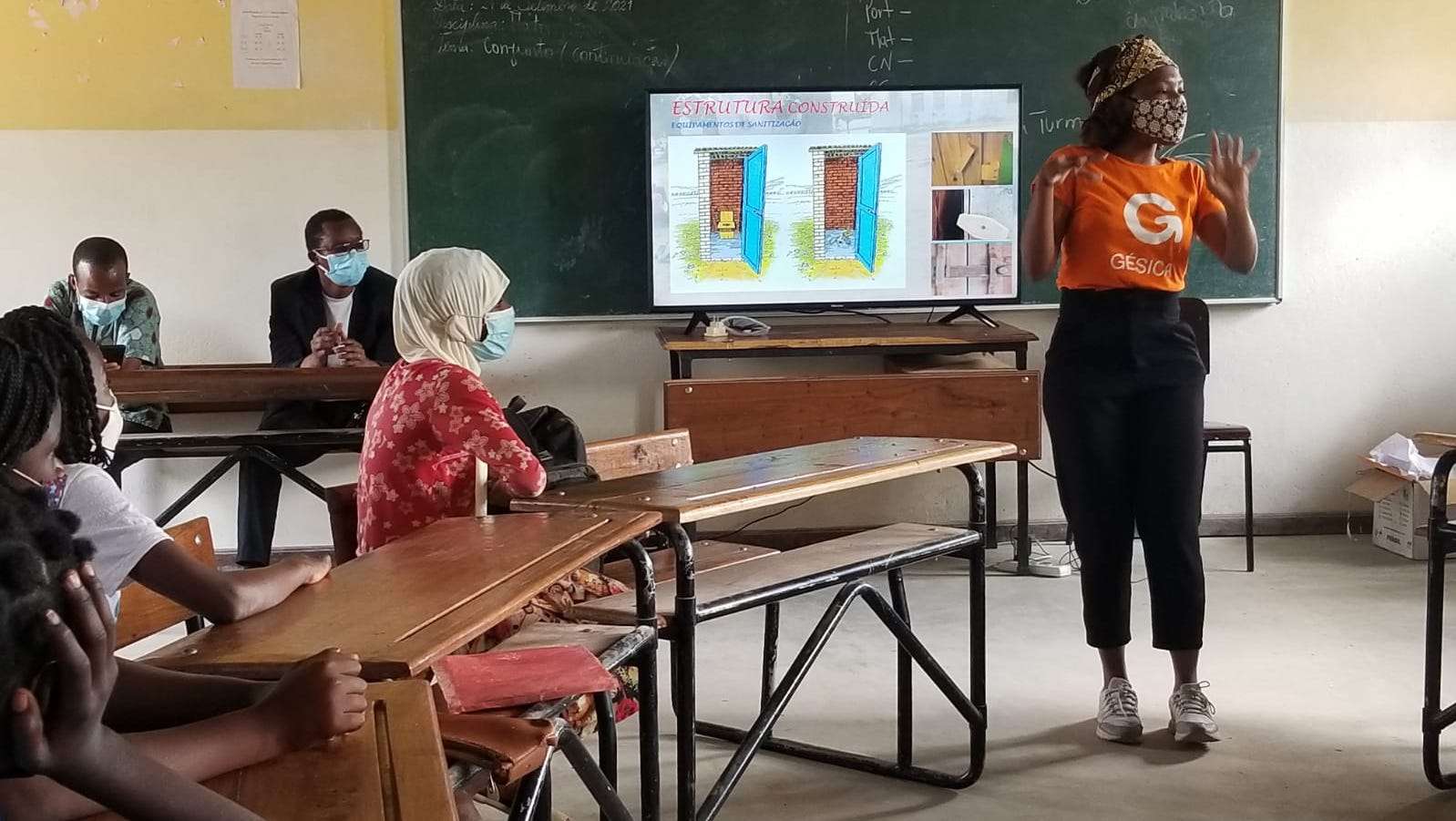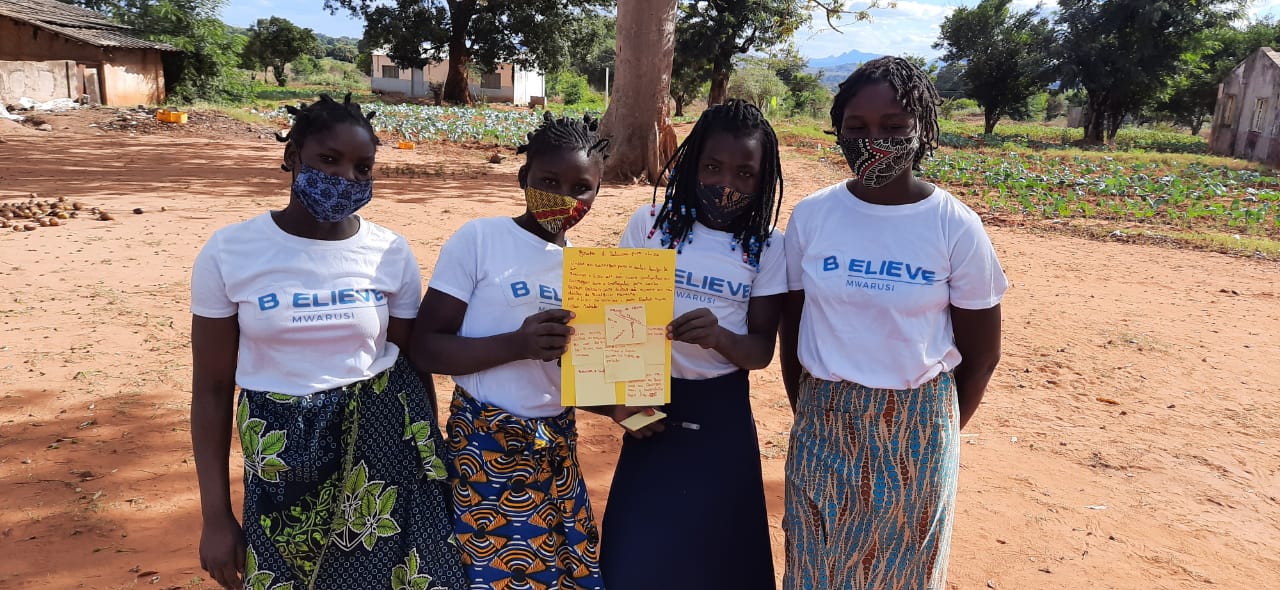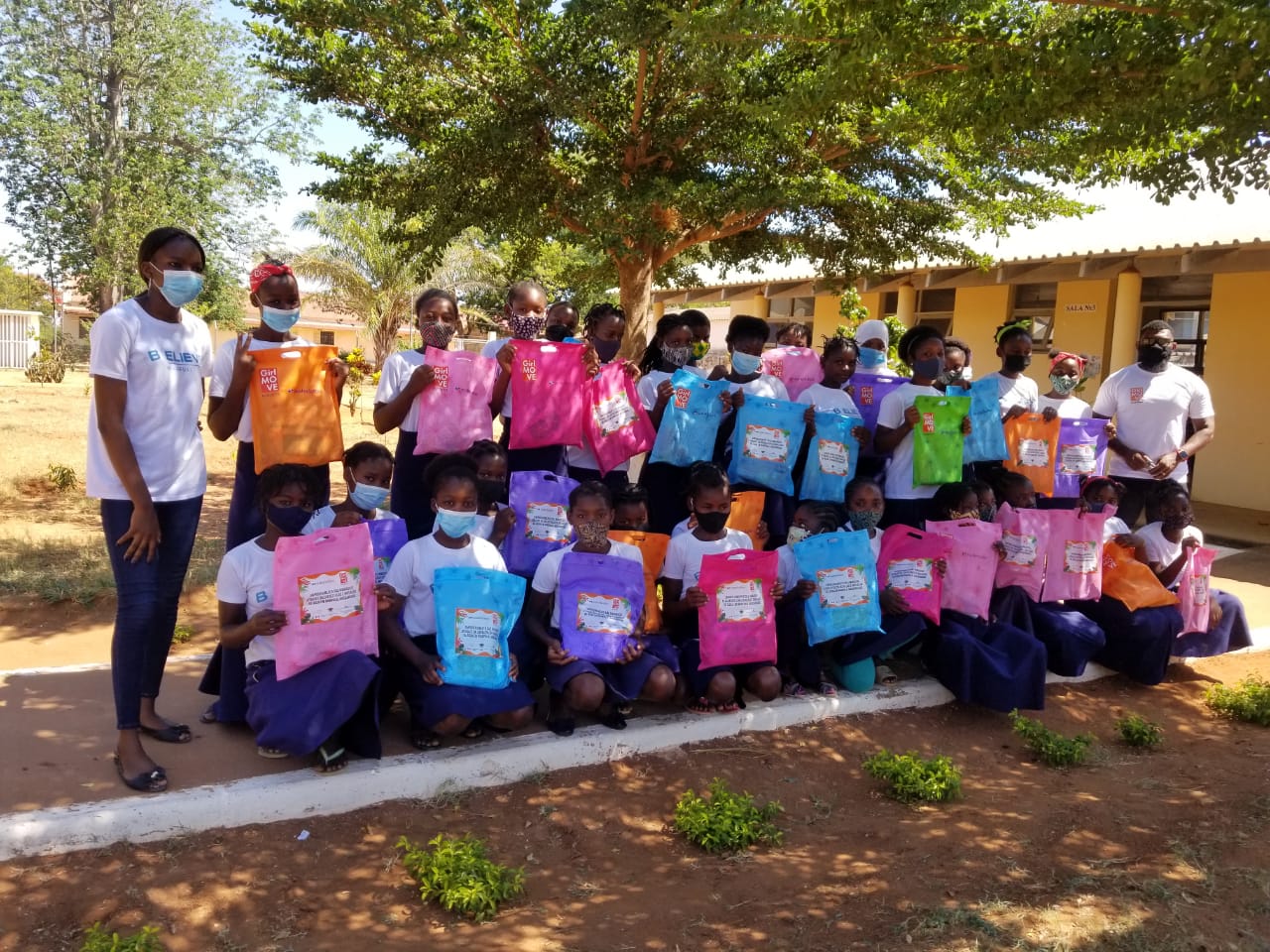
Girls as Water Leaders
Waterlution
In Nampula, Mozambique, climate change is posing a major threat to lives and livelihoods. In recent years, drought and reduced rainfall have caused a water shortage, while changing weather systems have produced cyclones, storms and other threats.
Supported by FIT, Waterlution and Girl Move Academy tested an innovative solution to empower 100 young women (ages 12 – 15) to address water and sanitation challenges within their schools using permaculture solutions. The intention was to give girls the tools to participate in decisions about which responses and interventions could be developed in their school grounds - incentivizing school attendance, boosting confidence, and creating shared gender-transformative value for the community.
“In Nampula, a city where the population accesses drinking water from rivers, the climate crisis is very evident,” said Gésica Canivete, a Girl Mover (facilitator). “There are many challenges - health, poverty, WASH, school dropout…this is the reality these girls are facing (for their future).”
The innovation empowered young girls by giving them the tools and context to rethink their future in an environmentally adaptive way through workshops. They learned to map water systems in their schools and community and create solutions to pressing problems. The workshops included community engagement, permaculture & WASH education, and training in gender equality and leadership. The girls had the opportunity to demonstrate their newly acquired knowledge about WASH and permaculture in scale models that were presented to their peers and the community.

“The fact that it is a more practical training - not just explanatory - but DOING, makes a big difference,” said Canivete. “When the girls are thinking of solutions, knowing that they have a voice, and being asked to use it, I could see in them something I didn't have at that age. I didn't know they could occupy the spaces of leadership and decision-making in the way they did.”
As a result of the innovation, the girls’ confidence and agency to take part in WASH decision-making in their community has increased. Among participants, 88% reported that their confidence increased as a result of participating in the program and 100% of Girl Movers (facilitators) observed an increase in leadership, public speaking, and willingness to participate. Areas for growth include school attendance rates (which increased by 2%) and community perception of the girls’ abilities. The innovation would have benefitted from deeper collaborations with local water committees; more community involvement to showcase the girls’ knowledge and ideas; and possible involvement of boys.
“I could see their autonomy in wanting to develop a rainwater capture system, together with a cistern. I could see this in their scale models,” said Canivete. “Now that the girls have these skills, they can use this in their homes and communities to open this possibility of rainwater harvesting. I see this as having only a positive impact, not only for them, but also for the greater context.”

Over 95% of community members and boys surveyed said they would support the implementation of the girls’ project ideas. During the innovation celebration event, the girls presented their ideas to over 30 community members and received overwhelmingly positive feedback - with community members asking for the girls’ opinions, suggestions and ideas on how to manage some of the community’s most challenging water problems. The Provincial Director of Health said, “I never imagined that girls could speak with such authority about water and sanitation and health”.

